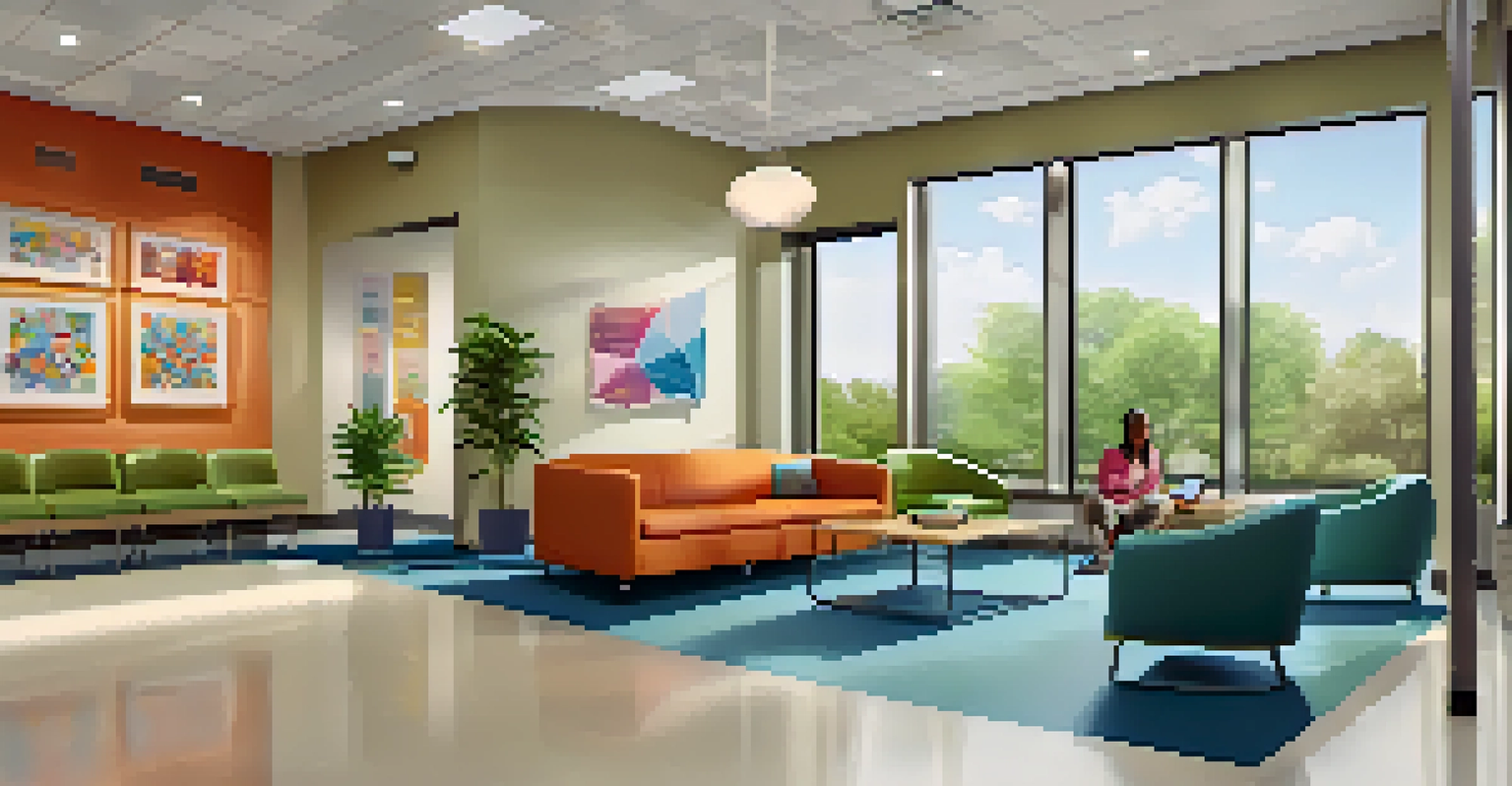Healthcare Sector: A Pillar of St. Louis's Economic Stability

The Economic Backbone: Healthcare's Role in St. Louis
The healthcare sector in St. Louis is more than just hospitals and clinics; it’s a vital component of the city's economic infrastructure. This industry not only provides essential services but also generates significant employment opportunities for residents. With thousands of jobs tied to healthcare, it plays a crucial role in maintaining the city’s economic stability.
The greatest wealth is health.
Moreover, the sector contributes billions of dollars to the local economy, supporting ancillary businesses such as pharmacies, medical supply companies, and research institutions. This interconnectedness creates a robust economic ecosystem that benefits everyone in the community. As healthcare continues to evolve, its role as an economic driver only strengthens.
In essence, the healthcare sector is a pillar that supports not just the physical health of the population but also the financial health of St. Louis. As we delve deeper into this topic, we'll explore various aspects that highlight the significance of this industry in our city.
Employment Opportunities: A Lifeline for Local Residents
One of the most significant impacts of the healthcare sector in St. Louis is job creation. From doctors and nurses to administrative staff and support roles, the healthcare industry employs a diverse range of professionals. This variety helps ensure that residents have access to stable employment, which is paramount in today’s economy.

Additionally, many healthcare institutions in the area offer training programs and partnerships with local schools. These initiatives help prepare the next generation of healthcare workers, ensuring that the city has a well-trained workforce ready to meet the demands of the industry. This creates a cycle of growth, where education leads to employment, which in turn strengthens the economy.
Healthcare Drives Local Economy
The healthcare sector in St. Louis generates significant employment and economic contributions, supporting various ancillary businesses.
In summary, the healthcare sector serves as a lifeline for local residents, providing not only jobs but also opportunities for professional growth. This connection between healthcare and employment is vital for maintaining the economic stability of St. Louis.
Innovation Hub: St. Louis's Healthcare Research Landscape
St. Louis is not just a hub for healthcare services; it’s also at the forefront of medical research and innovation. Institutions like Washington University and Barnes-Jewish Hospital are leading the charge in groundbreaking studies that push the boundaries of medical science. This focus on research attracts talent and investment to the region, further enhancing its economic viability.
Health is not just about what you're eating. It's also about what you're thinking and saying.
These research efforts often translate into new treatments, technologies, and healthcare solutions that can improve patient outcomes. By fostering a culture of innovation, St. Louis positions itself as a leader in the healthcare field, which in turn attracts businesses and professionals looking to be part of this dynamic environment. The ripple effect of such advancements can be felt across the economy.
Ultimately, the emphasis on research and innovation within the healthcare sector not only enhances the quality of care but also solidifies St. Louis's reputation as a center for medical excellence. This contributes significantly to the city’s economic health.
Healthcare Accessibility: A Community Focus
Accessibility to healthcare services is a critical issue that intersects with economic stability. In St. Louis, various programs and initiatives aim to ensure that all residents have access to necessary medical care, regardless of their socioeconomic status. This commitment to healthcare accessibility is crucial for fostering a healthy workforce and community.
Community health centers, outreach programs, and partnerships with local organizations play a significant role in bridging gaps in healthcare access. By focusing on preventive care and health education, these initiatives not only improve individual health outcomes but also reduce overall healthcare costs, benefiting the economy as a whole. A healthier population is a more productive one.
Job Creation Through Healthcare
The healthcare industry offers diverse job opportunities and training programs, ensuring stable employment for local residents.
In summary, the emphasis on healthcare accessibility in St. Louis is a vital part of the city’s economic strategy. By ensuring that all residents can receive the care they need, the city strengthens its workforce and supports economic growth.
Healthcare's Role in Economic Resilience
Economic resilience refers to the ability of a region to withstand and recover from economic shocks. The healthcare sector in St. Louis has demonstrated remarkable resilience, proving to be a stabilizing force during challenging times such as economic downturns or public health crises. By being essential to everyday life, healthcare remains a constant source of employment and services.
During the COVID-19 pandemic, for instance, the healthcare sector not only adapted to unprecedented challenges but also showcased the importance of having a strong healthcare framework. Hospitals and healthcare professionals stepped up, ensuring that the community received necessary care, which in turn supported the local economy. This resilience highlights the critical role healthcare plays in the broader economic landscape.
Consequently, investing in healthcare infrastructure and services is not just about improving health outcomes; it’s also a strategic economic move. A resilient healthcare sector can help ensure that St. Louis remains a vibrant and economically stable city.
Collaboration and Partnerships in Healthcare
Collaboration among healthcare providers, educational institutions, and local businesses is key to strengthening the healthcare sector in St. Louis. These partnerships foster innovation, improve service delivery, and enhance the overall quality of care available to residents. By working together, stakeholders can address the complex challenges facing the healthcare landscape more effectively.
For example, initiatives that connect healthcare organizations with universities can lead to cutting-edge research and training programs that benefit both students and the community. This collaborative approach ensures that healthcare professionals are well-prepared to meet the evolving needs of patients and the community at large. It also encourages knowledge sharing and resource optimization.
Innovation Fuels Healthcare Growth
St. Louis is a center for medical research and innovation, attracting talent and investment that enhance both healthcare and the economy.
Thus, fostering collaboration and partnerships within the healthcare sector not only enhances service delivery but also contributes to the city’s economic strength. By leveraging collective expertise, St. Louis can continue to thrive as a leader in healthcare.
Future Outlook: The Evolving Healthcare Landscape
As we look to the future, the healthcare sector in St. Louis is poised for continued growth and transformation. With advancements in technology, telemedicine, and personalized healthcare, the way we approach healthcare is changing rapidly. This evolution presents both challenges and opportunities for the local economy.
Embracing these changes means investing in new technologies, training programs, and infrastructure to support a more innovative healthcare environment. It also requires adaptability from all stakeholders, including healthcare providers, patients, and policymakers. The ability to navigate these shifts will determine the future success of the healthcare sector.

In summary, the evolving healthcare landscape presents an exciting opportunity for St. Louis to strengthen its economic foundation. By staying ahead of trends and embracing innovation, the city can ensure that its healthcare sector remains a cornerstone of economic stability.